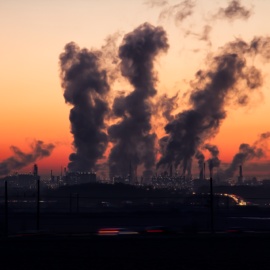
The oil and gas industry wants to self-report spills and, of course the State legislature gave them what they wanted. This is the fox guarding the hen house and the quesstion is what will the Governor do? Veto or not?
Last month, an unknown amount and type of acid gas leaked from within the Domino Sugar refining facility in Chalmette, escaping into the air. The cause was also unknown, according to a notice sent to the Louisiana Department of Environmental Quality by the plant. Such self-disclosures are sometimes known as courtesy reports, and are often the only way members of the public learn of unauthorized releases. The leaders of a New Orleans-based grassroots advocacy group are worried about the potential impacts of keeping such reports shrouded from public view for up to two years, which is what could happen if Gov. John Bel Edwards signs legislation allowing the Department of Environmental Quality to create a voluntary environmental self-audit program. “There’s a lot of information and reports right now on below-reportable-quantity events that are pretty damn serious,” said Broderick Bagert, a lead organizer for Together Louisiana. “At least in some instances, there is a venue of information that’s going to be foreclosed of things that we already are aware of.” Together Louisiana, a network of more than 250 faith-based and civic groups, is pushing for the governor’s veto, a decision that will have to be made by midnight Thursday.
nola.com
Self-audits have been pushed by the oil, gs and chemical industries since 1997. The industry says it is following a model proposed by the EPA. The model says that the industry would self-report small spills and get a lower fine to increase reporting of these spills. The report of these spills would be kept secret for up to two years meaning the local government and citizens would be kept in the dark. Current self-audits are reported and published but there is a minimum spill size that triggers the report.
Bagert says it’s unclear whether these notices would remain available to the public if they’re provided through a self-audit. “The question here is whether the public has a right to know information that its government is in possession of about toxic chemicals in their own community,” he said. “We all could have debates about the appropriate regulation. This is something far simpler. It’s even knowing that releases and spills of these toxic chemicals have taken place.” A spokesman for the DEQ declined to comment at this time when asked whether courtesy reports would remain confidential under the program.
Should the bill become law, the agency will work with stakeholders (industry only or also the public?) and the process will take months.
Some environmental advocates, including the Louisiana Environmental Action Network, also strongly opposed House Bill 72, which also removes the requirement for the DEQ to hold public hearings on major source air permits. Shauna Sanford, the governor’s communications director, said Monday that the bill is still “under review” and no action has been taken yet. Since the legislative session ended, the governor has only vetoed three bills. He also issued a number of line-item vetoes to the budget and appropriations bills.
Again, a waiting game and what will the Governor do? Can the industry be trusted to self-audit? Past actions say no but maybe the chance of reduced fines will make this something they will do.


